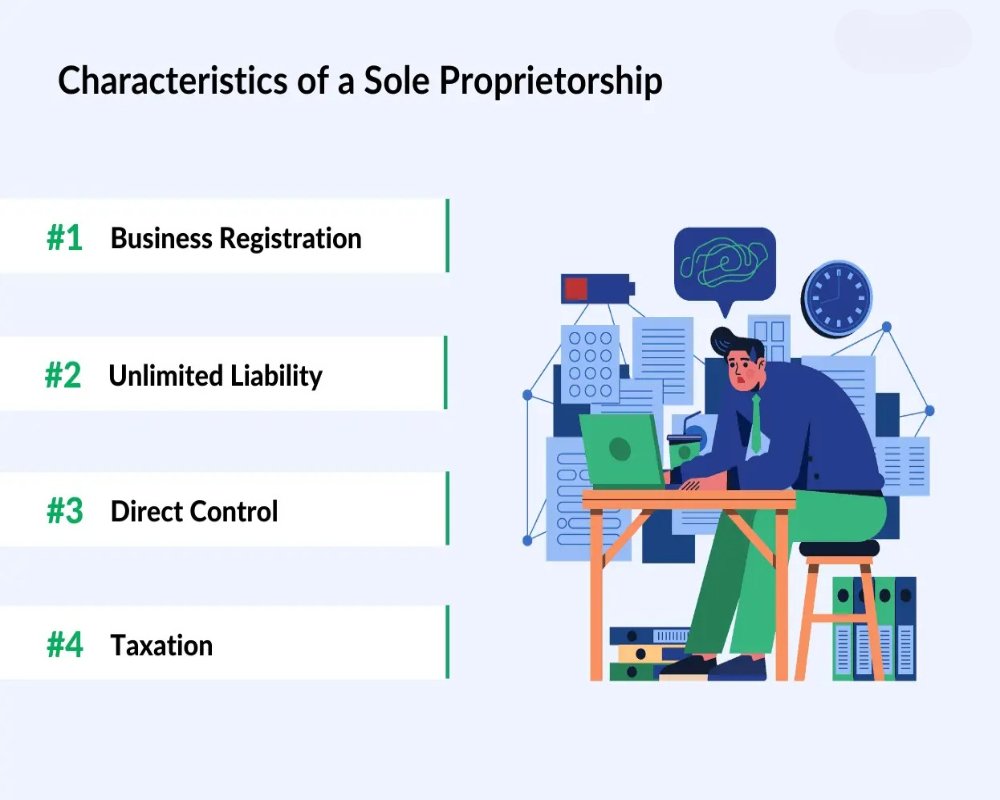1. Single Ownership
- The business is owned and operated by one individual.
- There is no distinction between the owner and the business.s
- All profits and losses belong solely to the owner er.
- The owner makes all business decisions independently.
- No partners or shareholders are involved.d
2. Ease of Formation
- It is the simplest form of business to establish
- Requires minimal legal formalities to start
- No mandatory registration under corporate laws
- Basic licenses like GST or local registrations may apply.
- Can be quickly started and closed without complex procedures
3. Full Control and Management
- The owner has complete authority over daily operations.
- No need for consultation or approval from others
- Quick and flexible decision-making is possible.
- Direct handling of customers, suppliers, and staff
- Personal involvement in all aspects of the business
4. Personal Liability
- The owner is personally responsible for business debts.
- There is no legal separation between personal and business assets.
- In case of losses, the owner’s personal property can be used to repay liabilities.
- Financial risks are entirely borne by the proprietor.
- No legal shield from business obligations
5. Lack of Continuity
- The business does not have a perpetual existence.
- It may dissolve upon the owner’s death or incapacity.
- There is no legal provision for automatic succession.
- Continuity depends on the owner’s interest and availability.
- Succession requires creating a new legal entity if needed.


0 Comments